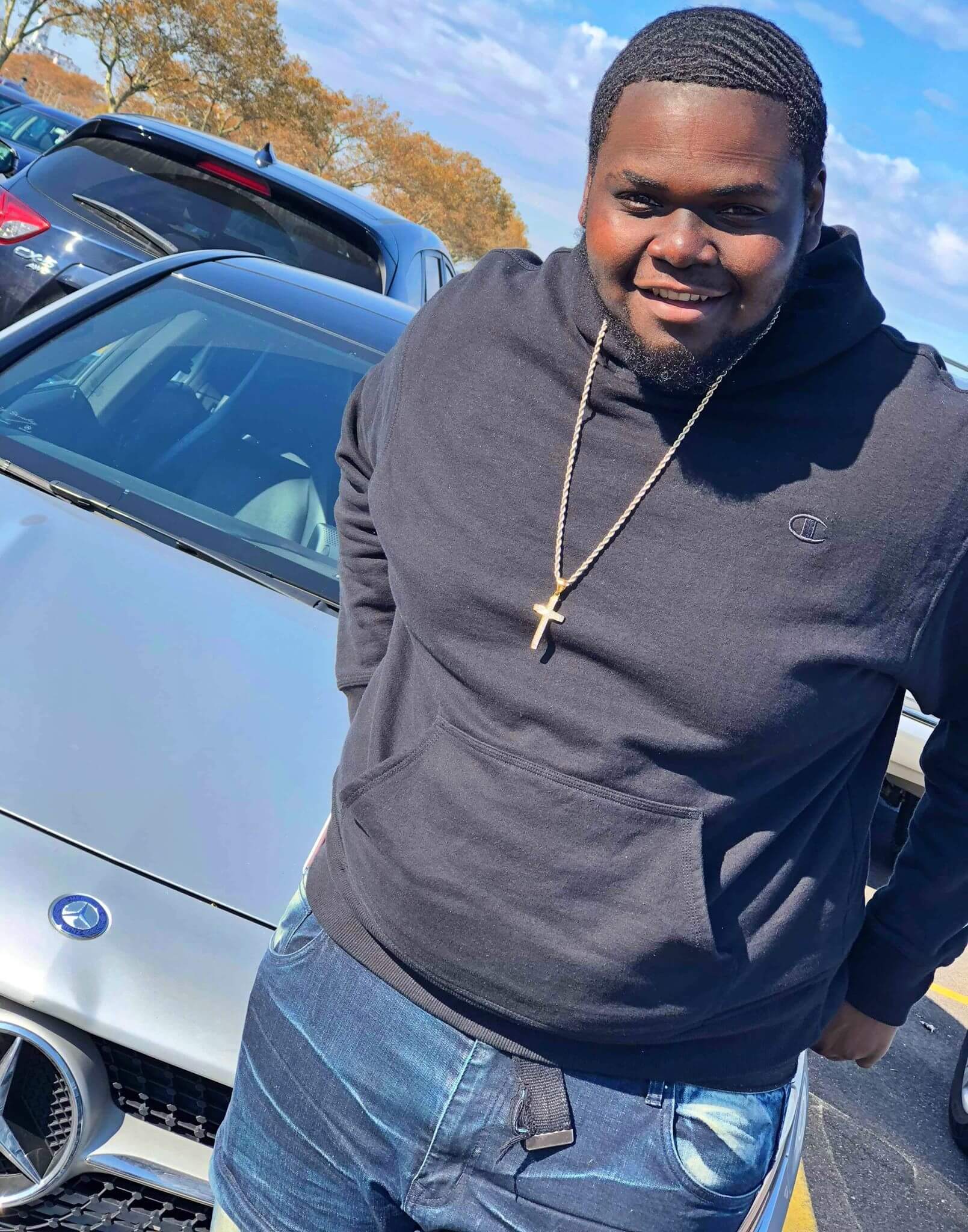Music has been the sound of humanity’ s oppressions and will since the beginning of times, sharing it’s essence with revolutionary and changing periods. “
Allen A, better known by Suave_A, has been surrounded by instruments since he was a school boy going to church. Coming from a Haitian heritage, and growing up in the Caribbean section of Flatbush, the rapper has seen his skills developed from playing drums and piano on Sundays to the artist he is becoming now. His music goes beside the tendences of current rap to engage with the street sounds that have always represented the voice of minorities and reality.
“Since the very beginning I fell in love with music, with the sounds, with the notes. I could say it started with Gospel music, but also R&B, hip-hop, soul… I listened to all of them growing up.
Despite his youth and his short professional career, the singer counts the support of a whole community that has seen other young people working hard, and setting all their enthusiasm into music. His dances and charismatic tone of voice show his potential as an emerging artist with nothing to envy to those he admires.
“I focus on rap music because I think this is the voice of our generation. That is what I am into it now. Coming from a neighborhood like Flatbush, you really see and listen to everything, and you get involved on the vibes. It is more than a style; it is a signature”
Hip hop and reggae music were born in New York and Jamaica respectively, but both grew up in New York City as part of a special period of history. In the early 70´s and through the 80´s, the world was moving ahead with big changes in social and civil rights. With special attention to Black people’s needs and rights, both music genres declared what was going on in a big important city as New York has always been.
At the beginning of the 80´s, Jamaican people settled in neighborhoods in the Bronx and Flatbush, at the same time that reggae music was travelling around the world with Bob Marley. Hip hop appeared in the 80’s as a way to express resentment about unequal situations for the most unlucky classes of the city. The poorest neighborhoods joined with the music to tell the rest of the world about the Black revolution and movement.
Born in the same neighborhood as many other underground talents such as Joey Badass, or the late Pop Smoke, Suave_A moves away from traditional hip hop sounds. He gets straight into catchy choruses, lyrics rich in rhymes, and deep verses calling for dancing and street parties.
Following the line of American rappers like Chief Keef, and drinking from the havoc of Chicago’s streets and drill sounds, the young Suave_A makes his way for a new non-resting American rap trend. His music is an improvement from electronic and rap beats in the UK, but adapted to our much tougher underground culture.
“Music plays a big role for me because I come from a history of music family. My dad is musician, my brother is musician, my mom is a singer. Raising up it was there. It was meant to be to focus on music. Here is where I am putting all my focus, all my effort, and hard work right now. I know if I can do it, I can go far.”
His story might not be as different as other’s from big artists he looks up to such as the rapper Nas, who was told to drop school in his early teens, and focus on his music passion by a father who was already into it. Nas’ s father understood the system from an uncommon perspective in society, and his vision pushed his son to not only follow his dreams, but also think outside the box until he made it. Self-education, consciousness, and a will for learning and reading are key to build the real and strong personality demanded to become an artist.
Suave_A ensures some of the big challenges of the music industry are keeping on as an artist as well as working with other artists on his level to lift him up.
“You need to find the right people to work with. Find good music, good rhythms, styles, work plays. I am still developing, so I need to keep writing, and find my self confident, so from here to a year or two I find my total stage. I will be in a better place than I am right now. I just need to move forward. A challenge is a challenge, so you got to face it, or you find an excuse to do not do it.“
His video for the single No Time To Waste was presented to the public on Friday July 23th as his first ongoing project.
Suave_A has been working on new material to complete his catalog, and it will be dropped soon. The young artist has all the qualities to become the next rapper who sees his career skyrocket from the Underground of New York to the top of the podium. The fact that music is an essential part of his life is also an inspiration for those who like him come from struggles, and fight for achieving a better spot probably away from the standards of society.
Suave-A can be heard online at Soundcloud , follow him on Instagram : www.instagram.com/suavea_ebe, or in his Youtube channel https://www.youtube.com/channel/UCuJNBbfWIvhjFont2XyZ6tw.










